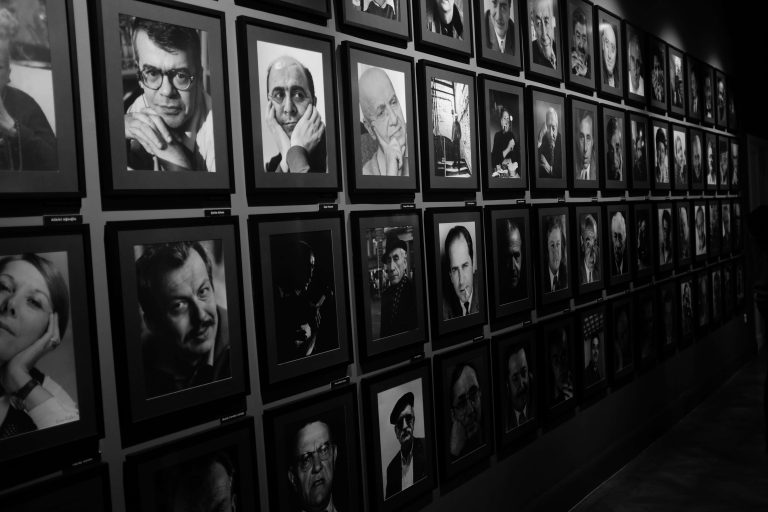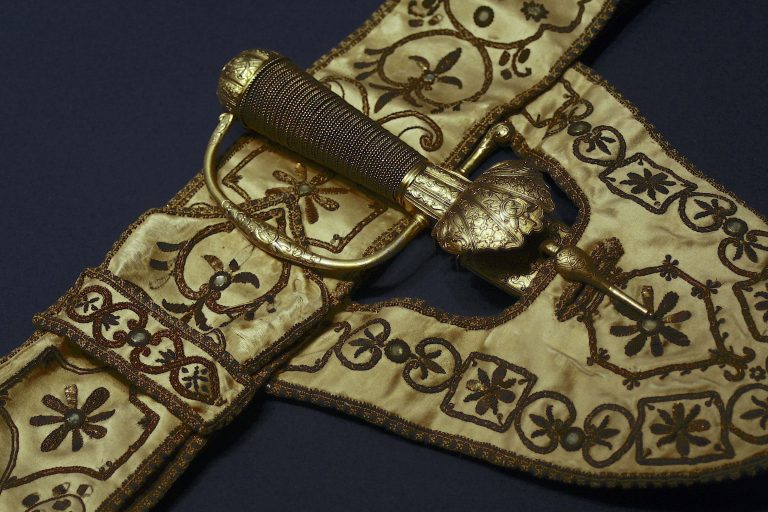Unveiling the Heritage of Portuguese Literature
Portuguese literature, with its deep roots and rich tapestry, embodies the cultural and historical richness of the nation, resonating with the echoes of centuries past. From the Galician-Portuguese poetic tradition to the contemporary scene, it reflects the nation’s encounters with conquest, exploration, and cultural exchange, evolving amidst diverse influences and epochs. Through its verses, Portuguese literature encapsulates the enduring spirit of the Portuguese people, their triumphs, struggles, and aspirations, serving as a mirror to the broader human experience.
At its core, Portuguese literature invites exploration into landscapes both real and imagined, encountering characters and themes that resonate across continents. From the enchanting allure of Lisbon’s fado songs to the rugged landscapes of rural Portugal, it explores identity, memory, and belonging. Through its pages, Portuguese literature transcends boundaries, offering glimpses of a nation’s past, present, and future, and inviting readers on a voyage of discovery into the soul of a culture rich in history and complexity.
Unique Characteristics and Heritage of Portuguese Literature
Portuguese literature stands out among its European counterparts for several unique characteristics that have shaped its identity over centuries. Foremost among these traits is its deep-rooted emphasis on poetry, which permeates through the veins of Portuguese literary heritage. From the medieval troubadours to the modernist poets of the 20th century, poetry has served as a fundamental expression of Portuguese cultural identity, capturing the nuances of emotion, history, and existential contemplation. Moreover, Portuguese literature is distinguished by its unwavering focus on history and exploration, reflecting the nation’s rich maritime heritage and its role as a global seafaring power during the Age of Discovery. Writers and poets have often drawn inspiration from Portugal’s epic voyages, weaving narratives that intertwine with the country’s colonial past, its encounters with different cultures, and the complexities of its national identity. Through the works of iconic figures such as Luís de Camões, Fernando Pessoa, and José Saramago, Portuguese literature has produced masterpieces that resonate across generations, offering profound insights into the human condition and the collective consciousness of a nation. In essence, Portuguese literature stands as a testament to the enduring spirit of creativity, exploration, and introspection that defines the cultural landscape of Portugal and continues to inspire readers worldwide.
Early Period (Medieval & Renaissance)
The Rise of the Portuguese Language
The rise of the Portuguese language traces back to the rich heritage of the Galician-Portuguese poetic tradition, which emerged during the Middle Ages. This tradition served as the cornerstone for the evolution of Portuguese as a distinct language, setting the stage for its subsequent development and proliferation. Initially, Galician-Portuguese was primarily spoken and written by troubadours and poets in the northwest region of the Iberian Peninsula, encompassing present-day Portugal and Galicia in Spain. As these poets crafted verses and compositions, they contributed to the formalization and refinement of the language, infusing it with cultural nuances and artistic sensibilities. Over time, this linguistic evolution laid the groundwork for Portuguese to emerge as a significant vehicle for literary expression, ultimately transcending regional boundaries and gaining prominence across the Iberian Peninsula and beyond. The Galician-Portuguese poetic tradition, with its lyrical beauty and expressive capabilities, thus played a pivotal role in shaping the identity and trajectory of the Portuguese language, paving the way for its enduring legacy in literature, culture, and communication.
Golden Age of Portuguese Literature (16th century)
The 16th century stands as the Golden Age of Portuguese Literature, characterized by a flourishing of artistic and literary achievements. It was during this period that luminaries like Luís de Camões emerged, leaving an indelible mark on Portuguese literature. Camões, in particular, is renowned for his magnum opus, “Os Lusíadas,” an epic poem that celebrates the Portuguese Age of Discovery. Through intricate verse and vivid imagery, Camões immortalized the spirit of Portuguese exploration and conquest, elevating the language to new heights of literary excellence. However, Camões was not the sole figure shaping Portuguese literature during this remarkable period. Alongside him, playwright and poet Gil Vicente made significant contributions to the dramatic arts. Vicente’s works, which ranged from allegorical dramas to popular farces, reflected the social and cultural milieu of Renaissance Portugal. Through his plays, Vicente provided insight into the complexities of Portuguese society, while also showcasing the linguistic richness and versatility of the Portuguese language.
Moreover, the 16th century witnessed a burgeoning interest in historical chronicles, further diversifying the literary landscape of Portugal. Chroniclers like Fernão Lopes and João de Barros chronicled the nation’s past, offering invaluable insights into its history and cultural evolution. Their works not only served as historical records but also played a pivotal role in shaping Portuguese identity and collective memory. In essence, the Golden Age of Portuguese Literature was a period of unparalleled creativity and innovation, characterized by the emergence of iconic literary figures and the flourishing of diverse literary forms. Through their writings, these luminaries not only enriched the Portuguese language but also contributed to the broader cultural tapestry of Europe.
From Baroque to Romanticism (17th–19th centuries)
The Baroque Period (17th century)
The Baroque Period, spanning the 17th century, heralded a remarkable era in literature, characterized by its ornate style and intricate thematic explorations. Portugal, deeply influenced by the Baroque movement, saw a significant transformation in its literary landscape during this time. Prominent figures such as Padre António Vieira emerged, leaving an indelible mark with their profound contributions to the literary realm. Vieira, in particular, exemplified the Baroque aesthetic through his eloquent prose and profound insights, delving into themes of spirituality, human nature, and societal complexities. His works not only captivated audiences but also enriched Portuguese literature, adding layers of depth and complexity. As a key figure of the Baroque Period, Vieira exemplified the fusion of intellect and emotion, creating a lasting legacy that continues to resonate with readers to this day.
The Age of Enlightenment (18th century)
The Age of Enlightenment, which unfolded throughout the 18th century, marked a pivotal period of intellectual ferment and transformative ideas that swept across Europe and beyond. Portugal, too, felt the reverberations of this intellectual wave, as Enlightenment principles of reason, rationalism, and critical inquiry began to permeate its literary landscape. Portuguese literature, traditionally steeped in religious and cultural conventions, underwent a profound shift as writers and thinkers embraced the ideals of the Enlightenment. Rationalism became a guiding force, prompting authors to question established beliefs and institutions, and to explore new avenues of thought and expression. The Enlightenment ethos challenged conventional wisdom and encouraged a spirit of inquiry and skepticism, leading to the emergence of works that championed individual autonomy, human rights, and scientific progress. Through the dissemination of Enlightenment ideals, Portuguese literature became a conduit for intellectual liberation and societal reform, paving the way for a more enlightened and progressive future. The Age of Enlightenment thus left an indelible imprint on Portuguese literature, fostering a legacy of critical thinking and intellectual exploration that continues to resonate in the literary landscape to this day.
Romanticism (19th century)
The 19th century witnessed the blossoming of Romanticism, a literary and artistic movement that celebrated individualism, emotion, and the sublime. In Portugal, Romanticism found fertile ground, captivating writers and readers alike with its emphasis on passion, imagination, and intense emotion. Among the key figures who embraced this movement, Almeida Garrett emerged as a towering figure, leaving an indelible mark on Portuguese literature. Garrett’s works pulsated with the fervor and vitality of Romanticism, as he infused his writing with a deep sense of emotion and a profound connection to nature and the human experience. Through his poetry, prose, and dramatic works, Garrett captured the essence of Romantic ideals, exploring themes of love, longing, and the pursuit of the unattainable with unmatched lyricism and intensity. His literary vision transcended boundaries, inspiring generations of writers and shaping the course of Portuguese literature for years to come. As a pioneer of Romanticism in Portugal, Almeida Garrett epitomized the spirit of the age, harnessing the power of imagination and emotion to forge a literary legacy that continues to resonate with readers around the world.
Modern and Contemporary Literature (20th–21st centuries)
Realism and Social Commentary
The 20th century marked the emergence of Realism as a dominant literary movement, challenging romanticized notions of society and human nature with unflinching honesty and keen social observation. In Portugal, José Maria de Eça de Queirós emerged as a leading figure in the Realist movement, wielding his pen as a sharp instrument for social critique and commentary. Through his works, including masterpieces like “The Maias” and “The Crime of Father Amaro,” Queirós peeled back the layers of Portuguese society, exposing its contradictions, hypocrisies, and injustices with remarkable clarity and insight. With a keen eye for detail and a razor-sharp wit, Queirós dissected the complexities of human behavior and societal norms, shining a light on the moral decay and societal stagnation that plagued his era. His characters, rich in depth and complexity, served as vessels for his incisive social commentary, challenging readers to confront uncomfortable truths about power, privilege, and the human condition. Through his unwavering commitment to truth and authenticity, Queirós left an enduring legacy as a champion of Realism in Portuguese literature, inspiring future generations of writers to use their craft as a tool for social change and enlightenment.
20th Century Innovations
The 20th century stands as a beacon of innovation in literature, characterized by the revolutionary genius of Fernando Pessoa and his groundbreaking creation of heteronyms, which expanded the horizons of literary expression. Pessoa, a towering figure in Portuguese literature, shattered conventional notions of authorship and identity by inventing a multitude of distinct literary personas, each with its own voice, style, and perspective. Through his heteronyms—such as Alberto Caeiro, Álvaro de Campos, and Ricardo Reis—Pessoa explored the complexities of the human experience with unparalleled depth and nuance, blurring the lines between reality and fiction in his quest for artistic truth. Beyond Pessoa’s singular contributions, the 20th century witnessed a kaleidoscope of literary movements and figures that left an indelible mark on Portuguese literature. The modernist experimentation of Mário de Sá-Carneiro and the existentialist introspection of Vergílio Ferreira challenged traditional literary conventions, while the socially conscious realism of José Saramago and the lyrical surrealism of Sophia de Mello Breyner Andresen expanded the boundaries of Portuguese literary expression.
Moreover, movements such as Neo-Realism, which sought to capture the everyday struggles of ordinary people, and the Carnation Revolution of 1974, which brought about profound social and political change in Portugal, provided fertile ground for literary exploration and reflection. As the 20th century unfolded, Portuguese literature continued to evolve and thrive, embracing innovation, diversity, and experimentation in its relentless pursuit of truth, beauty, and human understanding.
Contemporary Literature (after 1974)
The Carnation Revolution of 1974 catalyzed a profound shift in Portuguese society and literature alike. José Saramago emerged as a leading voice in this new chapter, crafting narratives that mirrored the societal changes post-revolution. Through works like “Blindness” and “The Gospel According to Jesus Christ,” Saramago masterfully blended magical realism with incisive social commentary, prompting readers to confront the complexities of contemporary Portugal. Alongside Saramago, authors such as António Lobo Antunes and Mia Couto explored themes of identity and memory, weaving richly textured narratives that reflected the nation’s evolving landscape.
Contemporary Portuguese literature, shaped by the aftermath of the Carnation Revolution, continues to grapple with pressing social and existential questions. Writers delve into themes of collective trauma and cultural heritage, offering profound insights into the human condition. In the hands of these authors, literature becomes a powerful lens through which to explore the complexities of modern Portugal, inspiring empathy, understanding, and dialogue in a rapidly changing world.
Conclusion
Portuguese literature weaves a rich tapestry that reflects the nation’s triumphs, struggles, and aspirations across centuries. From the lyrical beauty of Galician-Portuguese poetry to the revolutionary innovations of contemporary voices, it serves as a mirror to Portugal’s encounters with conquest, exploration, and cultural exchange. Figures like Luís de Camões, Fernando Pessoa, and José Saramago have left indelible marks, shaping the trajectory of Portuguese literature and offering profound insights into the human condition.
Distinctive characteristics define Portuguese literature, from its deep-rooted emphasis on poetry to its unwavering focus on history and exploration. The 20th century ushered in a new era of literary exploration, marked by the revolutionary genius of Fernando Pessoa and the socially conscious realism of José Saramago. In the aftermath of the Carnation Revolution, contemporary Portuguese literature continues to grapple with pressing social and existential questions, offering profound insights into the complexities of modern Portugal. As we unveil the tapestry of Portuguese literary heritage, we are reminded of its enduring relevance and resonance, inviting readers on a timeless journey of discovery into the heart and soul of a nation.












